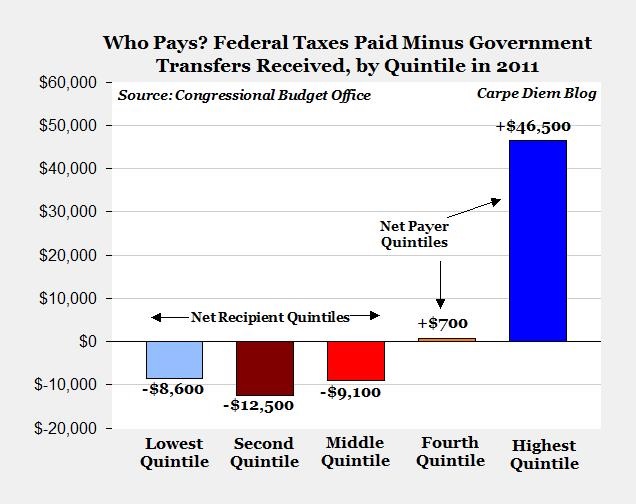At $15.62 an hour you are in the top 1% of earners
Admit It: You’re Rich is a discussion from Megan McArdle.
If you are making more than about $16 an hour, you are in the top 1% of income earners in the world. If your time horizon is the last few thousand years of history, sitting in the lower end of middle class or perhaps working poor, you would be in the very tip-top of the 1% for all of history.
(Cross-posted from my other blog, Outrun Change, because this discussion has so much to say about the radical economic progress that has taken place over the last 100 and 250 year timeframes.)
She is on the story of why people living on either coast are complaining they can barely get by on $350,000 a year.
I’m on it. So is David Sirota. And if your personal income is higher than $32,500, so are you. The global elite to which you and I belong enjoys fantastic wealth compared to the rest of the world: We have more food, clothes, comfortable housing, electronic gadgets, health care, travel and leisure than almost every other living person, not to mention virtually every human being who has ever lived. We are also mostly privileged to live in societies that offer quite a lot in the way of public amenities, from well-policed streets and clean water, to museums and libraries, to public officials who do their jobs without requiring a hefty bribe. And I haven’t even mentioned the social safety nets our governments provide.
So how is it that everyone who is making more than $33K a year doesn’t feel like they are incredibly, wonderfully, amazingly blessed to live a live of such luxury and comfort and ease?
